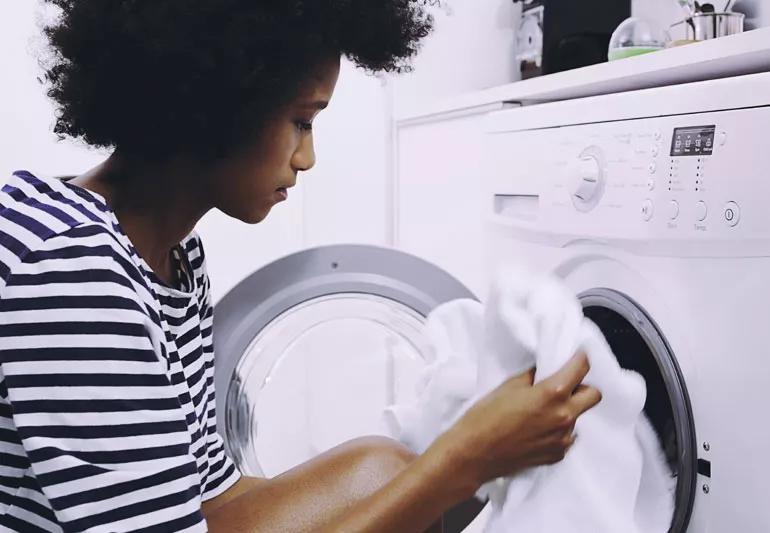3 allergy relief tips to stop tossing and turning

Image content: This image is available to view online.
View image online (https://assets.clevelandclinic.org/transform/4cbe7630-54e5-49e4-a775-6c008fafb20b/allergiesNightFix-919768658-770x533-1_jpg)
allergic woman washing sheets
After a day spent with the hallmarks of allergies – the itchy, watering eyes and stuffy nose – all you may want is a good night’s sleep.
Advertisement
Cleveland Clinic is a non-profit academic medical center. Advertising on our site helps support our mission. We do not endorse non-Cleveland Clinic products or services. Policy
Unfortunately, allergies have a way of following you to bed, making it hard not only to fall asleep but also to stay asleep.
“Studies of quality of life have compared people with allergies to people who have had open heart surgery, and the results were similar — just miserable,” says immunologist Sandra Hong, MD. “A lack of sleep definitely contributes to that.”
Dr. Hong shares three tips for allergy sufferers to get more restful sleep:
This is easier said than done, Dr. Hong says. If it’s seasonal allergies keeping you awake, take a shower before bed and leave dirty clothes outside your room. Keep your bedroom windows closed and run the air conditioning. If you use a window unit, make sure it’s recirculating the air and not venting it in from outside. For dust mite allergies, keep dust mite covers on your bedding. And if you suffer from pet allergies, make your bedroom an animal-free zone.
Dr. Hong recommends making your house — and especially your bedroom — carpet-free to make it easier to clean up allergens. If you have dust mite allergies, wash your bedding in hot water and dry in high heat weekly. Never dry your linens outside where pollen can follow them into your bed.
“Using medications properly can make all the difference in the world,” says Dr. Hong. “Antihistamines help with itching and sneezing, but alone do nothing to help the congestion that keeps you up at night.” Decongestants are the “D” part in allergy medications like Allegra-D®, but they can have a stimulant effect that disrupts sleep in some people.
Advertisement
The best choice for allergy relief and restful sleep are prescription nasal steroids — sold as brands like Flonase® and Nasonex®. While it may be tempting on sleepless nights to use a prescription or over-the-counter sleep aid, Dr. Hong never recommends their use, especially for her patients with allergies.
“If your medications aren’t working, make sure you see your physician,” Dr. Hong says. “There are other options we can try,” she adds.
Allergy sufferers can find relief – and more restful sleep – by addressing allergies from different angles: limiting allergen exposure, using the right medication and seeing your doctor if symptoms persist.
Advertisement

Delivered every Tuesday!
Sign up for our Health Essentials emails for expert guidance on nutrition, fitness, sleep, skin care and more
It's a letter about the news!
Learn more about our editorial process.
Advertisement
You’re sharing your bed with dust mites, bacteria and lots of dead skin
Indoor allergens know no season!
Symptoms can overlap and be hard to distinguish, but there are some telltale differences
Autumn allergens typically begin to bloom — and release their pesky pollen — around August
Sneezing, coughing and clear mucus shouldn’t be ignored
Look for a firmer mattress and then make adjustments as needed
Every season comes with its own set of allergens
Most antihistamines are OK, but avoid decongestants for at least the first trimester
Type 2 diabetes isn’t inevitable with these dietary changes
Applying a hot or cold compress can help with pain
Pump up your iron intake with foods like tuna, tofu and turkey